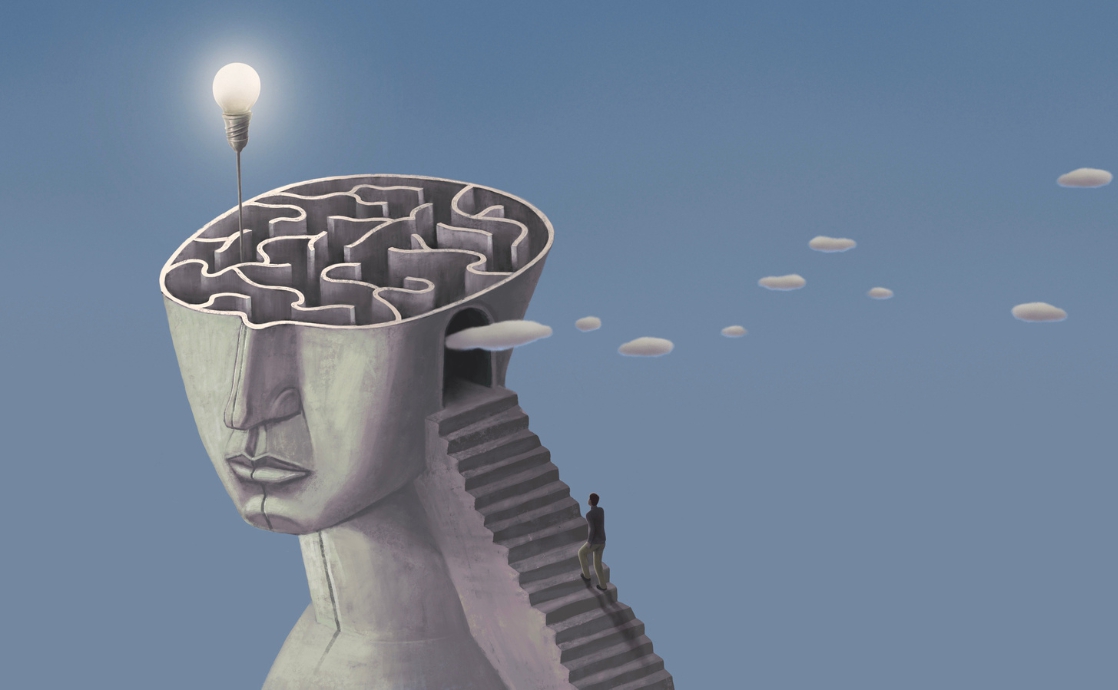The views expressed in our content reflect individual perspectives and do not represent the authoritative views of the Baha'i Faith.
Imagine inserting a plug into a socket, the appliance juiced and the turbines turning. In my case, the appliance that flashes on is my soul and the connection is to the cosmos and the energy which fuels it, God and the Holy Spirit.
When that wonderful feeling happens, there is no longer the wobble of disparate, ill-fitting parts to my person, but the hum of unity and oneness to it all, an oceanic feeling, a seamless surge way beyond the organ of the brain itself, at least on my good days. It feels like a luminous gyroscope set deep in the chest.
When our capacities to know and to love are conjoined, they constitute this kind of impulse and purpose, hence a drive, an intentionality that defines the core of human consciousness.
RELATED: What Can Lead Us Toward Spiritual Perfection?
The Baha’i teachings recognize the power and potential of the drive to know and to love. Baha’u’llah said that the Creator:
… chose to confer upon man the unique distinction and capacity to know Him and to love Him — a capacity that must needs be regarded as the generating impulse and the primary purpose underlying the whole of creation …
In fact, these two capacities represent one action, consisting of two integrated parts, comprising one mind.
Indeed, as Hooper Dunbar points out in Forces of Our Time: “Baha’u’llah explains the soul, mind, spirit, [and] heart are all one thing. They are ‘but one single reality’ but are characterized with different names according to the function they perform.” Thus a Baha’i-oriented mind represents the dissolution of dichotomous thinking altogether.
In this same sense, the Baha’i psychologist and author Michael Penn, in his book Our Common Humanity: Reflections on the Reclamation of the Human Spirit, defines the Baha’i mind-in-the-making as distinguished from the material, biological, and chemical determinants which dominate psychological thinking today. He posits, by way of Aristotle and by means of the Baha’i teachings, one organizing cohesive spiritual force in the universe. The quality and power of this force, this pure energy, are determined by the degree of unific partnership, and of true marriage, between loving and knowing.
Thus the “single, unitary force” of the human spirit participates in the Holy Spirit, which pervades all of creation and manifests itself variously throughout the mineral, vegetable, animal, and, finally, human domains. The human spirit connects a single human being with God and thus creates an artesian well effect which waters the motivation to love and to know, and, indeed, animates all of the inner and outer powers of man, and, finally, according to Penn, generates an individual “psychological sense of ‘self’.”
The Baha’i writer and philosopher William Hatcher explained how this process works:
When we respond appropriately to God’s overtures to us (by recognizing [Baha’u’llah] and obeying His laws), then there is established an authentic relationship between ourselves and God, and this vertical relationship becomes the basis of establishing authentic lateral relationships between ourselves and other human beings. The development and enhancement of these authentic relationships constitutes, as ordained by God Himself, the pursuit of Divinity as the ultimate moral value.
Such spiritual effort locates the energy field in the well-realized human mind, what Abdu’l-Baha termed the “supreme emblem of God,” which “stands first in the order of creation and first in rank, taking precedence over all created things.” This effort, Abdu’l-Baha wrote in The Secret of Divine Civilization, is embedded in good character, which, in turn, is based on the realization of spiritual attributes, otherwise known as virtues oriented toward selfless service:
A good character is in the sight of God and His chosen ones and the possessors of insight, the most excellent and praiseworthy of all things, but always on condition that its center of emanation should be reason and knowledge and its base should be true moderation.
In this way, by consciously developing the human spirit and the fine character traits that naturally accompany it, Abdu’l-Baha said “This is the balance wheel of all behavior, the means of keeping all man’s good qualities in equilibrium.” When it grows in this manner, the mind is poised to express itself in “the dazzling rays” of “heavenly power,” so that “god-like impulses may radiate from the conscience of mankind, and this divinely kindled fire which has been entrusted to the human heart may never die away.”
RELATED: Where Does Love Come From?
The spiritual architecture of the Baha’i mind then becomes generative, its radii intellectually reaching, emanating love not exclusively abstract or merely objective, but also personal and real. To achieve it is to challenge the exclusivity of our current scientific, hyper-rational, and disembodied modes of human endeavor so as to moderate them, and to make a place for enlightened subjectivity, the wholeness of personality, and love. This mindset is not a feeling or a preference; it is the deepest, most self-confirming, self-evident, electric sense of having what the Baha’i teachings call a “rational soul,” and the awareness and astonishment of knowing who one truly is at the depths of one’s being.
Given that loving and knowing are inseparable in the Baha’i writings, we must give as much weight to the substance of virtue as we do to the stuff of knowledge. Thus even the most executive use of the mind can never obliterate the dynamics of love. Even the most perfect intellectual mind cannot disabuse the human soul of its need to love and to worship, though people are free to try.
From within the dynamic inter-contextualization of Baha’i principles, then, the Baha’i mind in conjunction with community and institutions can grow into the mighty agency most capable of resetting one’s personal spiritual identity in this day – and ultimately of balancing the disequilibrium of the world.
We each bring our own unique hands, head, heart, eyes, ears, skin, intuition, intelligence, compassion, comprehension, memory, feelings, faith, surety, and shyness to that centering, energy-seeking plug. But once in, one acquires a working relationship between planet and person, being and biosphere, loving and knowing – thus setting up a creative countervailing energy to our cruel and violent world.
This essay is adapted from Brad Miller’s recently published book, Sickness, Death, and Resurrection of Holden Caulfield, which can be ordered HERE.
















Comments
Sign in or create an account
Continue with Googleor